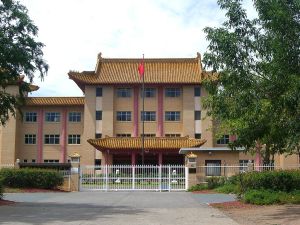nsnbc : A growing number of western countries including the United States, Australia and Germany are growing increasingly concerned about China, Chinese infiltration and espionage, and taking measures to mitigate real or perceived associated risks.
In his national security strategy published in December 2017, U.S. President Donald Trump identified China as a rival challenging Washington’s interests, influence and power. China is not merely perceived as a rising economic and industrial giant and competitor but as a potential risk that also involves influence operations and espionage.
Many intelligence agencies have also long harbored suspicions against Chinese students and academics present on U.S. campuses, worried that many of them could be involved in the collection of sensitive information concerning national security and technology.
Australia moved to ban political donations from overseas last month after a case involving an opposition politician delivering a pro-China speech after receiving funding from a Chinese tycoon. In New Zealand, a politician was found to have studied and taught at schools in China with close links to the security establishment before emigrating to the country.
The German intelligence services said in December 2017 that China was using the website LinkedIn to infiltrate government by targeting 10,000 politicians and civil servants, according to a New York Times report.
Chinese agents were reportedly establishing fake profiles on the website to get in touch with German citizens they would try to obtain information from about policies or technology.
Rarely reported, China has also continued using its Confucius Institutes and other cultural and educational bodies overseas as instruments to influence public opinion, emphasizing a positive image while trying to suppress negative opinions, reports said. The line between legal activities and the legal promotion of Chinese interests and outright espionage or influence peddling is more often than not blurred, but this is of course valid not only for Chinese activities. W
hat makes western countries inherently more vulnerable is their openness based on democratic values and traditions while countries like China even criminalize “criticizing the Communist Party”. Many foreign NGO’s are banned or blacklisted in China or on Chinese internet services.
CH/L – nsnbc 16.01.2018
Source Article from https://nsnbc.me/2018/01/16/western-countries-concerned-about-chinese-infiltration/
Related posts:
Views: 0
 RSS Feed
RSS Feed

















 January 16th, 2018
January 16th, 2018  Awake Goy
Awake Goy 











 Posted in
Posted in  Tags:
Tags: 
















